“Outside of a dog a book is man’s best friend. Inside of a dog it’s too dark to read.” — Groucho Marx
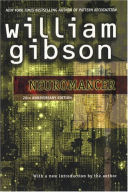 |
Neuromancer, by William Gibson I’ve been working my way through William Gibson’s novels. This is my least favorite to date, but only because it’s so dated. Reading it, I kept flashing on Tron and all those Dawn of Computing notions of being able to visualize structures of data stored in computers, a notion which lives on in the Matrix movie franchise. And what exactly does the protagonist Case do, really, other than take drugs and jack off in front of a monitor? Still, William Gibson’s engaging hipster style and talent for wrapping loose threads into satisfying endings make all his stories, even the ones that aren’t that good, pretty damn good. |
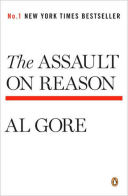 |
The Assault on Reason, by Al Gore Well-reasoned and persuasive, long on wonkery, short on rage: Al Gore in print is as stiff and wooden as he is in person. If only he had some rabble rouser in his genes he might be able to fire his readers up to fight the forces of darkness, who are in fact carrying out an organized, determined assault on reason. I’m convinced, Al, I totally agree, but . . . I need to be madder. I need to be moved. |
 |
The Aleph and Other Stories, by Jorge Luis Borges Vintage Borges, much of which I had not read before. Reading contemporary science-fiction I see Borges’ influence everywhere. Modern Latin American literature? There he is again. To read Borges is (I fervently hope) to become like Borges. |
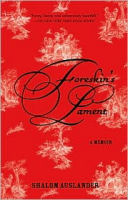 |
Foreskin’s Lament, by Shalom Auslander I lost patience with Mr. Auslander about halfway through his memoir. Wait a minute, I said to myself, obsessive fear of a vengeful God is not the exclusive province of Jews — any Catholic, any Muslim, any home-schooled fundamentalist could give Shalom a run for his money. And two, I said to myself, if you have a serious beef with God you either get over it or turn your back on Him. But to just keep bitching, all one’s life? That’s fucked up. |
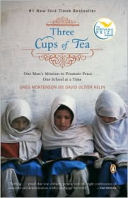 |
Three Cups of Tea, by Greg Mortenson In the midst of ever-grimmer news from Pakistan and Afghanistan, specifically the stories of Taliban attacks on girls’ schools, you can’t help wondering what will eventually become of Greg Mortenson’s selfless work for the children of those regions. The story itself is as inspirational and uplifting as it could possibly be, and you can’t help but want to join in and help . . . but then you hear the latest news and despair. Honestly, I don’t know where people like Greg Mortenson come from, but we need more of them. |
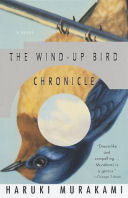 |
The Wind-Up Bird Chronicle, by Haruki Murakami The image of the wind-up bird — a never-seen bird heard only by certain people at certain times, whose creak makes them think they’re hearing the slow winding of the spring that runs the world — will stay with me forever. I was talking about the popular novel Geisha with a friend and mentioned that I hadn’t ever read a real Japanese novel (one written in Japanese by a Japanese author for a Japanese audience), and she said “I have one right here, translated into English.” And she gave me a copy of this entrancing book, which, from the moment I read the first lines on the first page, I could not put down. Murakami uses something akin to magical realism to tell his story, but he also uses the brute facts of history; specifically, the wartime history of the Japanese expansion into, and subsequent expulsion from, China and Manchuria, a history little known to Westerners. Very rarely, a novelist will touch a need deep within you and send you out into the real world in search of what your heart wants. Patrick O’Brian did that for me with his Aubrey/Maturin novels: I want a friendship like the one shared by Jack Aubrey and Stephen Maturin. Murakami does it too with the friendship that develops between May Kasahara and Toru Okada in this novel. This is brilliant work. I want to read more. |